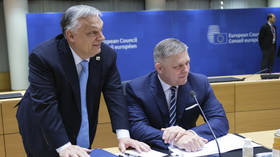Parallel imports may not help consumers

This week saw the Duma pass an amendment which practically legalizes parallel imports. The initiative was made by the Federal Antimonopoly Service to limit official dealers and "monopolistic" tendencies.
Many international businesses in Russia are now expressing worry about losing their exclusive rights. The increase in tariffs on imported goods has sparked a number of protests in Russia’s Far East. People there sell Japanese cars or repair them without the permission of the exclusive right holder – usually the producer.
This kind of trade is called “parallel – or grey – import”, and has been illegal for a decade. Cars, medicines, household appliances and cosmetics all top the list of parallel imports into Russia.
This week the Duma accepted an amendment to the law that legalizes parallel imports. According to experts, it may pose a challenge to official dealers. They could lose their legal right to distribute global brands on the Russian market. Juergen Sauer, CEO, of Mercedes Benz Russia says it is a significant factor in the market.
“We estimate the number of parallel imported cars in 2008 into Russia about 3500 cars. This is about 20% of our sales more or less. And on the parts side it’s even higher – on the spare parts side we have around 40%… it’s around 80 billion euro… 80 billion of turnover.”
Eduard Faritov, Car Market Analyst, Merrill Lynch says that legalization of parallel import – understandable in some respects – is likely to see customers lose out.
“It is understandable that they were able to build a case and get support from the Antimonopoly service, because it does look like manufacturers and authorized dealers are protecting their market and yes, they are. But the question is whether the consumer will win if these grey parallel imports are allowed and authorized dealers pulled out from providing different services to the market. And I’m not convinced that’s the best solution for customers.”
Now it’s up to consumers to vote with their wallets. And the choices are: more expensive, but quality-guaranteed goods, or cheaper products of doubtful origin.














